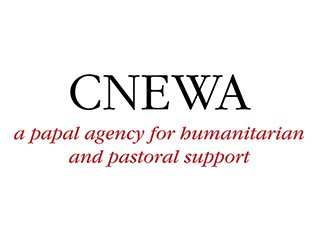Don’t Be Caesar’s Stooge
“Render unto Caesar what belongs to Caesar, and to God what belongs to God.”
We could make the same point holding up an American quarter, or a dollar bill: “Render unto George Washington what belongs to George Washington, and to God what belongs to God.”
The point is that Caesar and his successors, or George Washington and his successors, are not god. Even at their best, when we are lucky to have good rulers, their authority is only relative.
We can still be patriotic and we can still respect our leaders, even hold some of them in affection. We can pay taxes and we need infrastructure. The rule of law is especially an inestimable gift. The world can be a dangerous place. Atrocities really happen. We need courts, first responders, police, and soldiers.
But because of today’s gospel, Christians have always insisted on a critical distance between our civic loyalty and our ultimate loyalty. The state is always accountable to something higher.
This is why St Augustine could write that an unjust law is no law at all – because he knew there was something higher and more noble than the earthly city. St. Thomas Aquinas picked up the thread, explaining how man-made law should be assessed in light of natural law and God’s eternal law.
Two examples of how this has worked in history are Thomas More and Martin Luther King. More’s story is told beautifully in the movie A Man for All Seasons. King’s argument is very accessible in his short Letter from Birmingham Jail.
Saint Thomas More was beheaded in 1535 because he refused to acknowledge Henry VIII as head of the Church of England. He refused to be complicit when Henry defied the Pope’s authority and abandoned his wife.
King Henry was surrounded by advisers eager to flatter the king and secure their own place at court; but, by telling the King only what he wanted to hear, they were not the King’s true servants. By being a Catholic first, and an Englishman second, he was the best possible Englishman he could be. His famous last words were that “I die the King’s good servant, but God’s first.”
Today Thomas More is the patron saint of lawyers, civil servants, and politicians. We all succeed as Christians when we love our country and serve our country by prioritizing our true identity: we’re baptized Christians first, Americans second, and Democrats or Republicans or anything else a very distant third.
In the case of Martin Luther King, his Letter from Birmingham Jail cites this same tradition, including Augustine and Aquinas by name, to explain why we should not obey unjust laws in general, and racial segregation laws in particular. Our conscience, formed by faith, is primary, and our laws, even when democratically decided, are secondary.
The thing is, living the anxieties of daily life, our priorities and our identity often slip. Unless we protect and nurture what belongs to God, we will drift. We need to be guarding our primary identity, or we will flow with the tides of secular influencers. We will become Caesar's stooges, maybe without even realizing.
Right now the news media is a house of mirrors. With culture wars in our country, and shooting wars in the Ukraine and the Middle East, it’s often hard to know who to trust and what is really going on. Yet it is easy to be buffeted along from outrage to outrage, buzzed on internet adrenaline, anger, and fear.
As Christians, we can’t let the algorithms and the tribalism form our consciences. It’s like being in the court of Henry VIII. There is a temptation to go with the flow and be one of the flatterers. Aren’t all the cool kids, aren’t all the people in our tribe, headed this direction? The spiritual depth and ballast of Thomas More must be deliberately chosen and cultivated.
The good news is that our baptism roots us in God's kingdom, giving us a deeper and more creative identity. The good news is that our participation in confession and Eucharist keeps this citizenship fresh.
As Catholics living in confusing times, we have so many resources. Good spiritual reading can also be centering and consoling. I know many people think of the catechism as a reference book, but the catechism’s sections on prayer are truly beautiful. The catechism’s sections on just war or other social issues can be eye-opening and clarifying, helping you to read the headlines in new light. Truly, if you’re looking for ballast and comfort in a confusing time, if you want to root yourself in God and look askance at Caesar, I recommend the catechism or other classic spiritual reading.
Also, praise God, we live in a truly global church. We’re part of a team, a body. The Catholic Near East Welfare Association – sometimes known by its acronym, CNEWA – is a papal agency supporting local churches in the Middle East, north Africa, and Eastern Europe, including Ukraine and Armenia. If you donate on their website, they will subscribe you to their beautiful quarterly magazine, keeping you informed on what the Church is doing in those regions. It’s not just charity – their good work is an antidote to despair.
And, as always, there is fasting and prayer. These are the basics, the building blocks, spiritual ballast. How they work can be mysterious, but as experience shows, when we submit ourselves to God’s grace, we return to the world with more patience, courage, wisdom, generosity, and hope – all the virtues that we need in our daily life, as well as in the far flung crises. When Jesus said render unto Caesar what belong to Caesar, and to God what belongs to God, he was being pastoral, comforting. Our deepest self belongs to God. If we embrace a way of life that centers Christ and keeps secular authority and influencers in check, then grace, consolation, and freedom of spirit are waiting.


